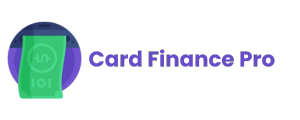Creating content calendars is an essential aspect of digital marketing that helps businesses plan, organize, and execute their content strategies effectively. In this comprehensive guide, we will delve into how to construct these schedules, the tools that can assist in their management, and ways to assess their success.
Having a well-structured digital content schedule not only ensures a consistent and engaging presence across all platforms but also enables marketers to stay ahead of trends and analyze the performance of their content.
Understanding the Importance of Content Calendars
Content calendars are pivotal in synchronizing your digital presence. They serve as a roadmap for your content strategy, determining what to publish, when, and where. This strategic planning tool allows for a more coherent and targeted approach to content creation.
By organizing your content in advance, you can maintain a consistent message across all marketing channels, engage your audience more effectively, and achieve your marketing objectives more efficiently.
Planning your content strategy is the first step toward creating a content calendar that truly aligns with your business goals and audience needs. It involves understanding your target audience, determining your content objectives, and identifying the key themes and messages you want to communicate.
Maintaining a centralized document that outlines your publishing schedule helps in ensuring that your team is on the same page, reducing confusion and streamlining the content creation process.
Steps to Creating a Robust Digital Content Schedule
The process of creating a content calendar involves several key steps, beginning with setting clear goals for what you hope to achieve with your content. These goals should be SMART: Specific, Measurable, Achievable, Relevant, and Time-bound.
Next, deciding on the content mix and formats that will best engage your target audience is crucial. Consider incorporating a variety of content types, such as blog posts, social media updates, newsletters, and videos, to keep your audience engaged and entertained.
Allocating resources effectively and establishing a workflow for content creation, approval, and publication is also key to the success of your content calendar.
Best Practices for Content Calendar Management
Consistency is key when it comes to managing your digital content schedule. It’s important to publish regularly but also to maintain a high quality of content. Balancing quantity with quality ensures that your audience stays engaged without feeling overwhelmed.
Anticipating industry events, holidays, and relevant observances and incorporating them into your schedule can also help in creating more timely and engaging content.
Tools for managing content calendars can significantly streamline the process of planning, scheduling, and publishing your content. Utilizing these tools effectively can save time and reduce the chances of errors.
Collaboration among team members is also essential for a calendar’s success. A shared calendar can facilitate this collaboration by providing a clear overview of what’s being published and when.
Measuring the Success of Your Content Strategy
Once your content is live, it’s crucial to monitor its performance and adjust your strategy accordingly. Key performance indicators (KPIs) such as engagement rate, conversion rate, and traffic sources can provide insight into how well your content is performing.
Regularly reviewing and analyzing these metrics will help you understand what types of content resonate most with your audience, enabling you to refine your content calendar for better results in the future.
Analyzing the effectiveness of your content is an ongoing process that can provide valuable insights into your audience’s preferences and behaviors, allowing you to continually optimize your content strategy for the best possible outcomes.
Feedback from your audience can also be an invaluable resource for improving your content and making it more engaging and effective.
In conclusion, developing content calendars is a strategic step in any successful digital marketing plan, offering a structured approach to content planning and execution. By understanding the importance, embracing the creation process, leveraging the proper tools for management, and continuously evaluating your content’s effectiveness, you can ensure that your digital marketing efforts are cohesive, compelling, and ultimately successful.
